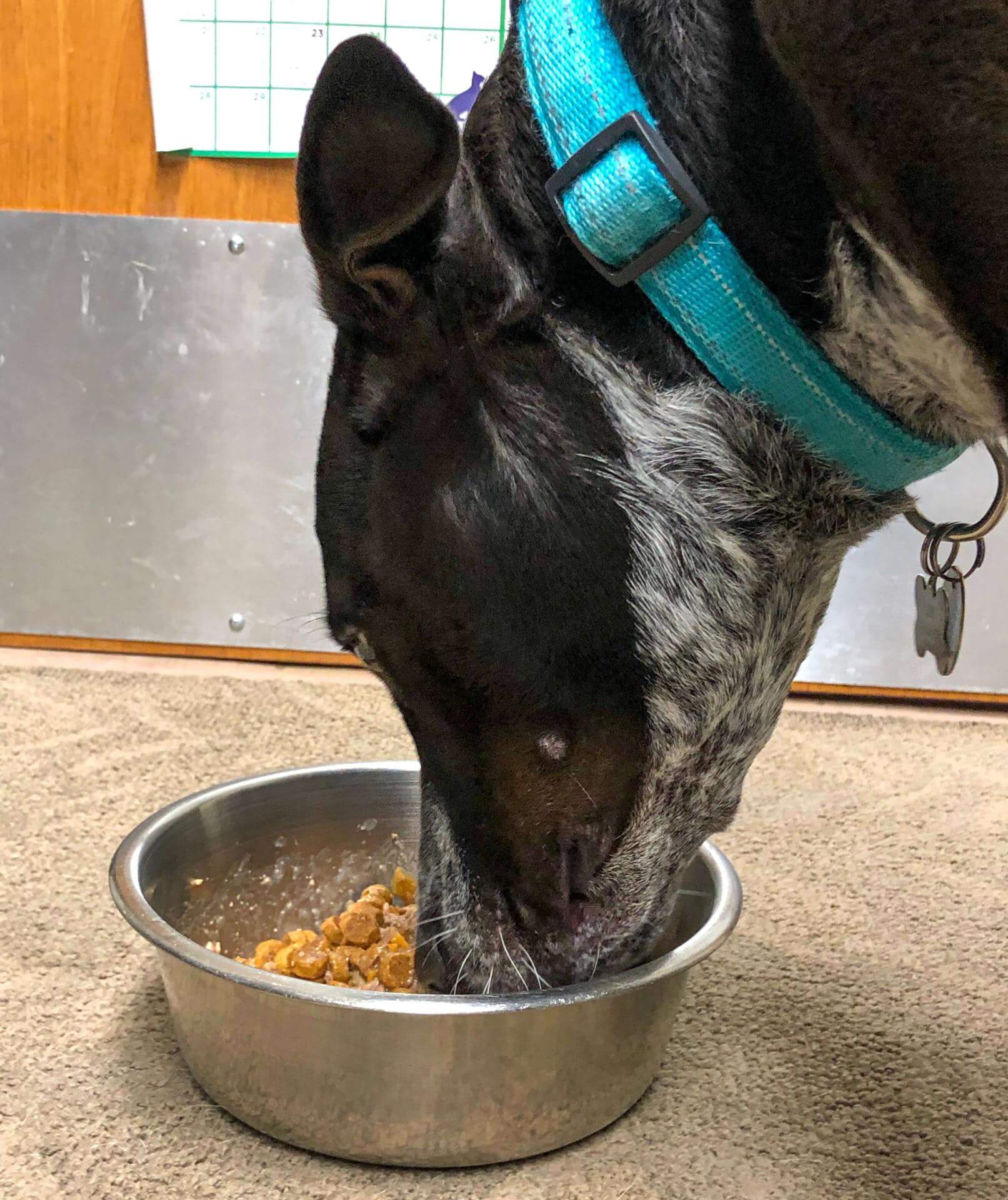
Pre-breeding Diet
Healthy pregnancies and healthy puppies start with healthy mothers. Bitches should be at a healthy weight (not underweight or overweight) prior to breeding and should be on a plane of nutrition that meets their activity level and requirements to maintain a healthy body condition. Dogs that have special nutritional requirements for conditions like allergies may still be managed with guidance for diet while other dogs dietary conditions like kidney disease should not be selected for breeding. Please discuss your plans to breed and your dog’s diet with the veterinarian at least 1 year prior to breeding.
Post Breeding /pregnancy Dietary Management
While a bitch that ovulates and gets pregnant doesn’t require much more than the healthy diet she is currently on, pregnancy does change her requirements in the latter half ( approximately last 4 weeks). Depending on how many puppies she is carrying, there will be less and less room for her stomach to expand while the energy demands of the puppies continue to increase as they grow. This may mean she needs to be fed her daily intake in smaller but more frequent meals. Or it may necessitate starting a diet that is suited for growth/puppy needs to increase the caloric intake while maintaining a healthy balance of vitamins and minerals. We do not recommend making homemade diets for your dog unless you are working directly with a veterinary nutritionist as the balance of micronutrients like vitamins and minerals is both difficult to manage but also critical to healthy puppy development. We also do not recommend us of any raw ingredients for food safety issue as bacterial toxins and mycotoxins can lead to pregnancy loss.
Post Whelping Dietary Management
This is really the critical time for nutrition. The bitch is amazing in that in a 2 month pregnancy their mammary glands are set up to supply all the glandular tissue and manage conversion of nutrients into production of milk. Over the first 4 weeks of her newborns lives, she will also take in somewhere between 2-3 times her normal caloric intake and convert all of it into milk to feed these growing babies. That’s about as impressive as the work of an Olympic athlete. It is very important to take into consideration how many puppies there are and ensure regular feedings of a high quality, high calorie diet (usually a puppy/growth diet) to ensure she has enough food to did this without taking off those nutrients from her body-which can look like, low body condition, dull hair coat and lethargy. From weeks 4-8, as the puppies are starting solid food themselves, the nutritional demands of the bitch will go down and they bitch will require less intake week by week until they eventually get back to their regular adult dietary intake at week 8 when puppies are weaned. This food reduction is also and part of the process for assisting the bitch to dry up mammary secretions
Use of Breeding Supplements
Normally a healthy adult or puppy diet has all the nutrients a puppy or pregnant mother requires. Historically nutritional studies have shown that just feeding additional puppy food was a better supplement that use of other supplements like liver or cottage cheese because the diet was in correct balance while still offering more of the nutrients needed. There are some specific supplements we ask clients to avoid during pregnancy like red raspberry which could cause premature uterine contractions and cottonseed oil/meal which can contain reproductive toxins like gossypol. There are others like vitamin D and calcium that could be risky to your dog’s healthy if not monitored carefully or used at the wrong time.
